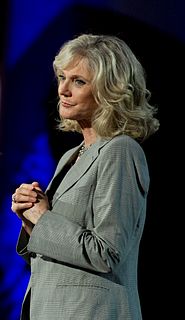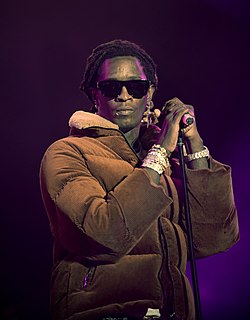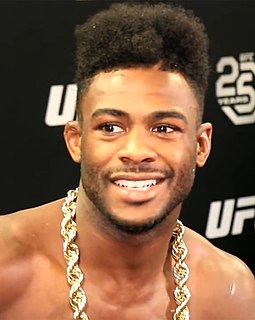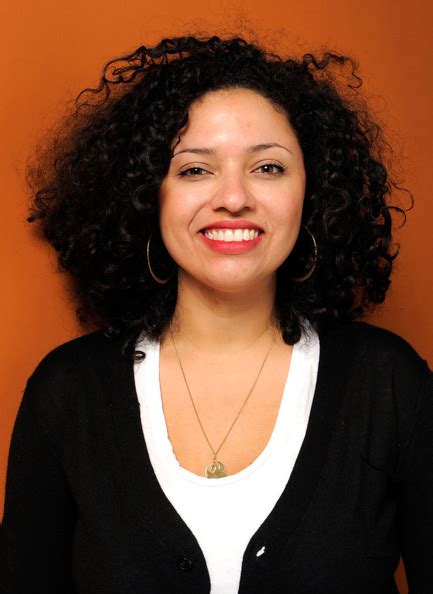A Quote by Blythe Danner
I was raised in a time where children were still seen and not heard basically, so I think a lot of us in my generation went the other way and just tried to be as much more liberal and open and we're still paying for it.
Related Quotes
This tremendous event is still on its way, still wandering; it has not yet reached the ears of men. Lightning and thunder require time; the light on the stars requires time; deeds though done, still require time to be seen and heard. This deed is still more distant from them than the most distant stars - and yet they have done it themselves.
Take the US. Women were not even able to vote until 90 ago, at about the same time they gained the right in Afghanistan. Rights of former slaves were very limited until the 1960s, and in some ways still are. In these and other domains there has been progress in democracy, though still seriously flawed. In other dimensions - the control of concentrated wealth over the political process, for example, things have gotten much worse in recent years. And there is much more, in both directions.
The situation with children is not good in America, nor in other countries. It may be much worse in other countries. It is not just because of the lack of money. It is the lack of the awareness that children are very open, smart and knowing people when they are still very little. Afterwards they close down. Then they become like everyone and we have to work again to open up.
I was raised in a country [South Africa] with a lot of political turmoil. I was part of a culture and a generation that suppressed people and lived under apartheid regimes. I don't know how you can come out of that and not have an awareness for the world. I think that if my life had turned out any other way and I was working in a bank, I would still feel this way about it, because there's a connection to humanity that to me is really important.
I think probably the scaredest I've ever been was in Somalia. I arrived there when the episode that became known as 'Black Hawk Down' was still taking place. The Americans were still pinned down under fire. And everybody else was basically going the other way, and I was the only one putting my hand up for a flight in.
Most of us in the baby-boom generation were raised by full-time mothers. Even as recently as 14 years ago, 6 out of 10 mothers with babies were staying at home. Today that is totally reversed. Does that mean we love our children less than our mothers loved us? No, but it certainly causes a lot of guilt trips.
There's all of the DVD extra material and all these other pieces of information that don't fit into a 90-minute experience, but it's still content and people still want to see it. It's being open to [the fact that] the business is changing and being open to how you can make money to afford you to stay in business to keep making new things. I think you just have to have an open mind and be really smart about stuff and not be so locked into the conventional way of how the process used to go.
I think, at the end of the century we'll have a generation of parents and a generation of children who won't have had the deep satisfactions of being parents and being children in the way that they might have and are going to spend a lot of time fretting and worrying and being hovered over for nothing. The question isn't so much "What will happen in the long run?" but "What's happening to people's lives right now?"
The young adult literature is relatively new - it just kind of exploded in the 2000s. When I grew up, there weren't bookstores with sections dedicated to teen lit, nor was my generation raised reading books written specifically for us. Because of that, today we still think of books for teens as children's books and so when you write a book that includes sensitive topics, it just seems even more controversial. What's troubling to me about that is these are issues adults know that teens deal with. Not writing about them makes them something we don't, or can't talk about.




































